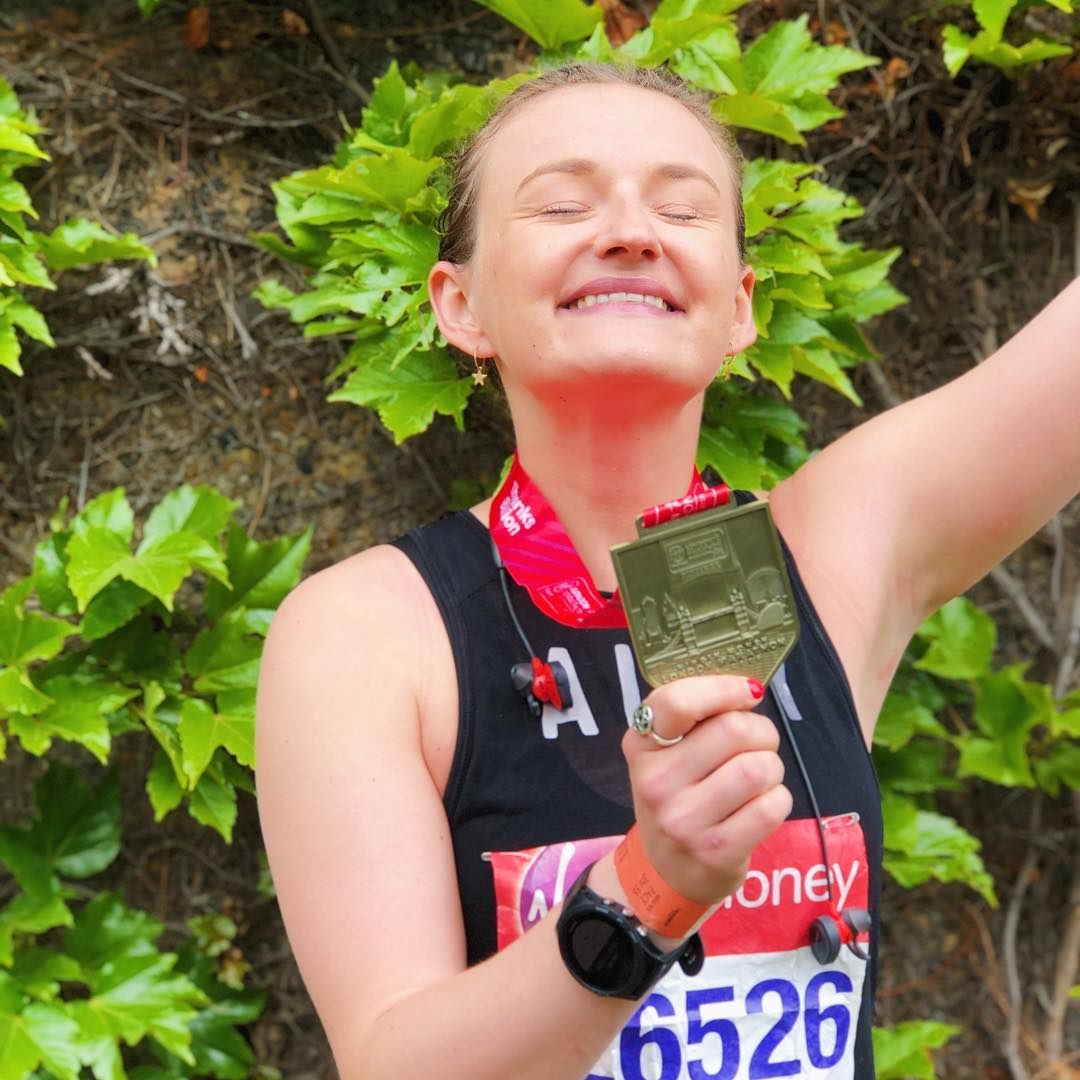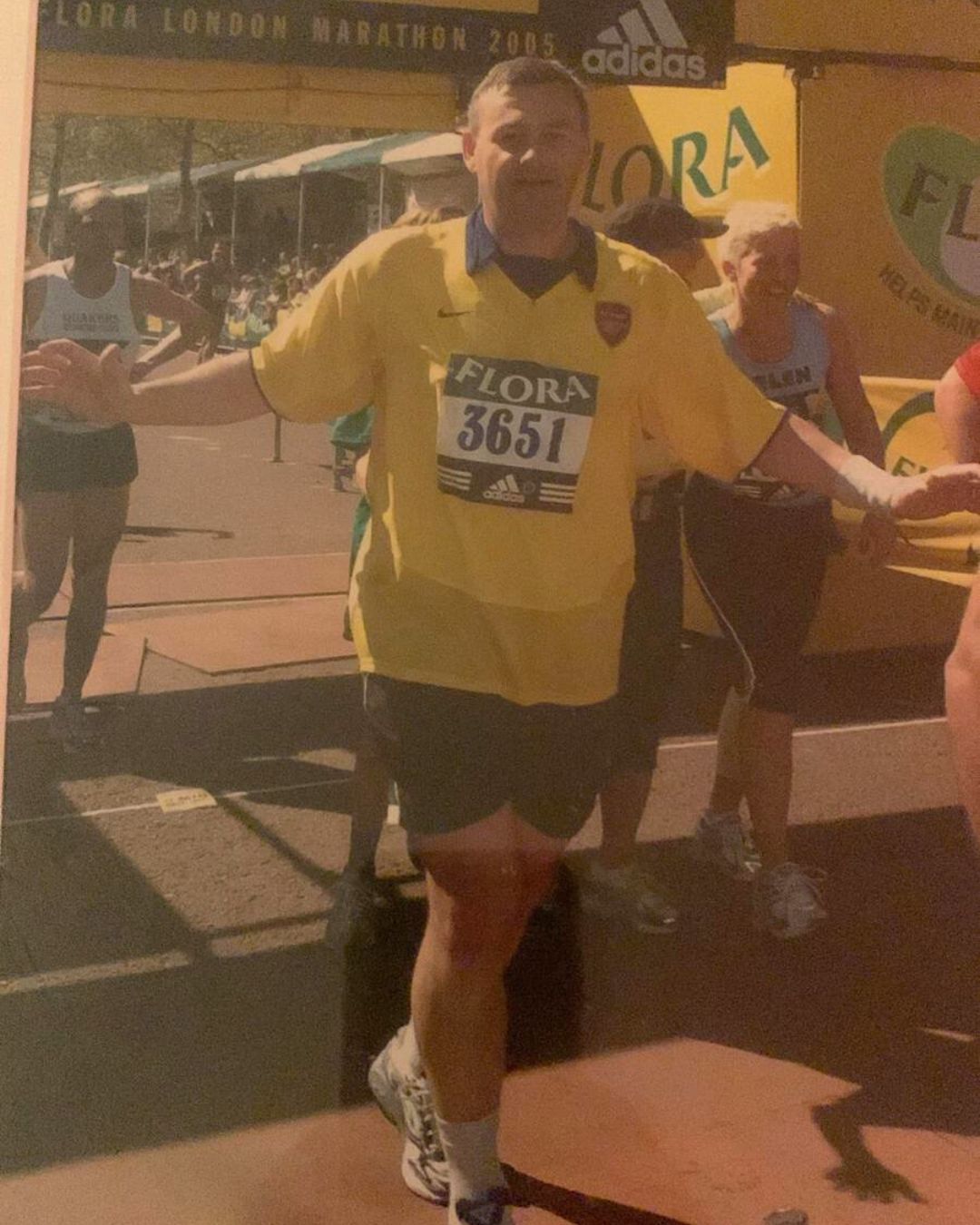
This week, the London Marathon has revealed that they've had over 840,000 applications for the 2025 iteration of the event - up a whopping 45% from last year's entries, which saw 578,000 people enter their names into the ballot.
It's the highest number of entries ever recorded for the globally-renowned race and a world record, too. It probably comes as no surprise, either - running is having a moment, and with it, sadly, so too are the derogatory comments.
You see, the record-breaking entry numbers - something which, in my opinion, is only a heartwarming indication that more and more people are being encouraged to exercise and to get moving - have sparked fierce debate on social media this week. Many have taken to Instagram to share their thoughts on who "should" and "shouldn't" be able to participate in the event. One Instagram user called Lee posted: "If you can't run a sub-four marathon then you shouldn't be allowed in. Sick of seeing [people] hobbling around in 5+ hours when real runners don't get a look in."
London was my first ever marathon back in 2018 and it's no exaggeration to say that completing the race has changed the trajectory of not just my life, but also my career. I've now run nine marathons and each one serves as a solid reminder of my self-worth, strength, and ability to overcome the seemingly impossible.
That first race was on a staggeringly hot April day - 28 degrees, to be precise - after months of training in the snow, sleet and hail. While I had trained for a sub-four, I was delighted even to finish, completing the course in 4 hours and 11 minutes. Initial disappointment at missing my time was soon replaced by admiration and awe at both my body and mind for carrying me through the miles, especially the very tough ones (of which there were plenty).
You see, the marathon distance isn't to be underestimated, which is why I take such issue with comments like the above. Only 1% of the population will ever complete a marathon, and how long it takes you, in my opinion, is completely irrelevant. This isn't the Olympics. We aren't athletes. We're just normal people, trying to prove that we can and fundraise money for deserving charities along the way. Case in point: £67 million pounds has so far been raised from the 2024 iteration of the race, a staggering amount that will go so, so far.
For more on why I think we should be encouraging people to exercise, not slamming them for the time it takes them, keep scrolling. Don't miss our handy guides to running tips for beginners, mindful running, how to run faster and speedwork training, while you're at it. Thinking about running a marathon yourself and keen to learn know how to run further? Scroll our expert training tips for a marathon, here.
The London Marathon has seen a record-breaking near million ballot entries for 2025 - so why are we still discriminating against runners because of their times?
Let's get into some stats, first - because, while a sub-four goal is pretty commonly discussed among runners and non-runners, it's actually a really fast marathon time to bank and something that many runners will never achieve in their lifetimes. In 2024, just shy of 21,000 London Marathon finishers completed it in under four hours. That's 39% of all finishers - meaning well over half wouldn't have been able to compete if these arbritrary timing rules were put into place. And, according to one marathon finish time website, stats show that 43% of male runners and 21% of female runners will achieve a sub-four in their lifetime, making it a gender issue, too. (As if women need yet more barriers to entry....).
This leads me to my next point nicely. Sub four is a pretty fast time, and a time that, for many, will take months and months of dedicated training to achieve. Most don't have the luxury of this time while also juggling work, social, and family commitments. Feeling like you're "too slow" or "not fit enough" is already a huge barrier to entry for so many, so why are we continuing to put people down who are going out of their way to improve their health and lives?
Look at it this way - for me, movement has always been about both physical and mental health. There is more research than I could possibly cite proving that movement helps your mental wellbeing. And at a time when government statistics show that obesity figures in the UK are rising - from 2021 to 2022, 63.8% of adults were thought to be overweight or obese, a 0.5% increase from the year prior - why are we still shaming people and discouraging them from doing arguably the easiest, cheapest form of exercise out there?
Speaking to James Dunn from The Running Channel, who's run 40 marathons and, of those, one sub-four-hour race, he agrees that making such a monumental community and charity event about times will have a serious knock-off effect.
"If there was a time restraint on people being able to access the ballot, I don't know where I would be," he shares with Marie Claire UK. "When I first entered the London Marathon ballot in 2016, my mental and physical health were the worst they had ever been. That yes from London was a literal lifeline. It forced me forward into running, something I'd never really enjoyed before that."
"I'd completed my first half marathon the week I found out I had a London Marathon spot and had come in the last 2% of finishers. But it was these victories, regardless of time, that gave me the confidence to take on the training for 26.2," he goes on. That said, it wasn't without its challenges. "I was so fearful before I started running that I had to "look" a certain way or run certain times that it almost put me off altogether. It was why I did most of my training at night, and it's why I'm still to this day such an evangelical about running because it's so important people know there are no gatekeepers apart from a few angry men in the comments sections."
He finished his first marathon in five and a half hours and it's always been one of the proudest moments of his life. So, what about the trolls saying all London runners should be finishing in under four hours? "The idea that some want to rob people of that joy and life-changing moment boggles my mind," he shares.
He maintains that running has not only boosted his confidence, wellbeing and mental health, but changed his life, too. "Without marathon running and the health benefits that came with it, I am confident that I wouldn’t have the job I have now, the family I adore, or the coping mechanism that enables me to weather life," he goes on.
Bottom line? Dunn believes that marathons and running as a whole are for everyone, regardless of pace. "That medal weighs the same no matter how long it takes you and the pride is the same, regardless of if you finished first or triumphed by just finishing," he shares.

On a personal note, I got into running because of my Dad who, despite having one of the most demanding jobs and four children, completed five marathons during my childhood and the London Marathon three times. His fastest time was 4 hours and 6 minutes, meaning if the arbitrary four-hour cut-off was put into place, I'd never have signed up. Never in my wildest dreams would I have considered myself able to complete such a feat without my Dad as inspiration. It was a comfort to know that if he could do it, perhaps I could, too, and the father-daughter bond we strengthened over those months of training, where I'd ring him at all hours of the day with fuelling questions and marathon-related queries, still makes me smile to this day. It's a common ground, something we both share a love of, and something that will always bring us closer. Make the London Marathon just for sub-four runners, and you prevent thousands, if not millions, of runners, from nurturing bonds in the same way.
If you want to see athletes at the top of their game, watch the Olympics this summer. Failing that, there are plenty of club events for speedier runners to partake or spectate in. Make the London Marathon, known for being inclusive for all genders, races, abilities, and arguably fitness levels, about time, and you strip away what it is at its core - a heartwarming reminder that anyone can do hard things, if they put their mind to it.
As Hugh Brasher, the event director for the TCS London Marathon said on the record-breaking number of entries, “Marathon day is always an extraordinary and inspirational day when we celebrate the very best of humanity." And I couldn't put it better myself. Running isn't about the time, the PB's, or the pacing. It's about the joy, the community, and the being able.
Shop MC UK's go-to kit now:
Adanola leggings are great for the gym, yoga, Pilates and - yep, you guessed it - running, too. Take it from me - I'm a Health Editor who's extremely fussy when it comes to fit kit and these get my seal of approval for being sweat-wicking, comfortable and supportive.







